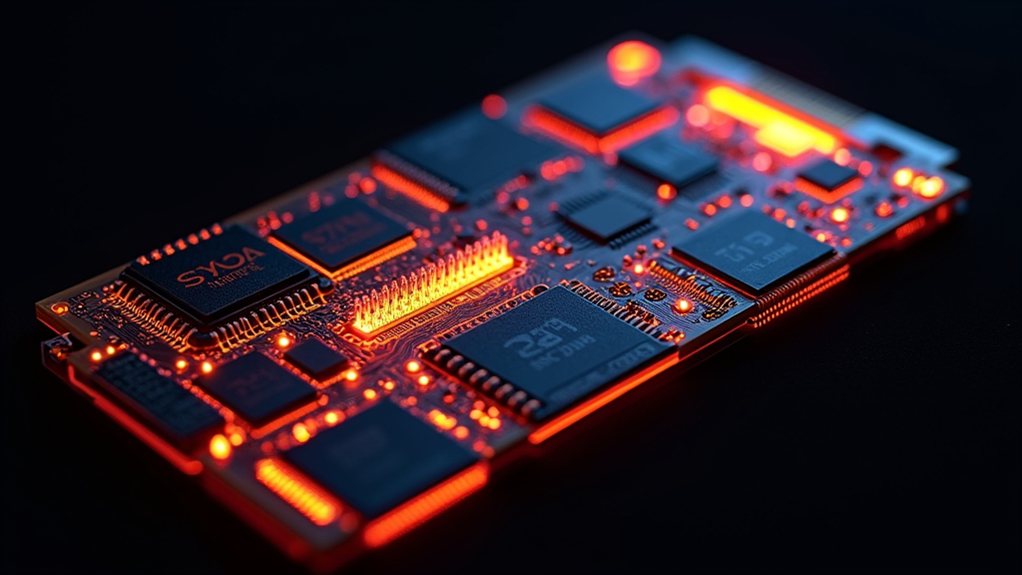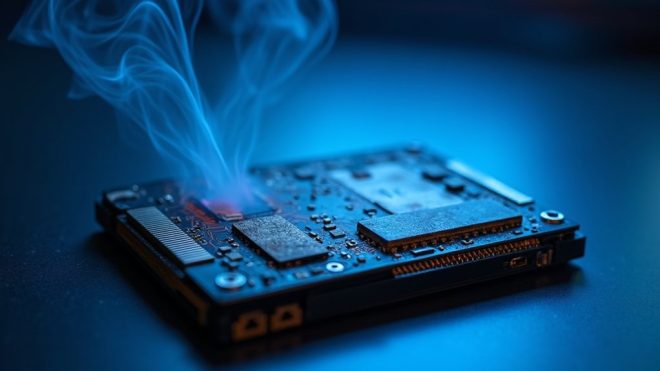Recent reports reveal Windows 11’s KB5063878 update is potentially causing catastrophic SSD failures, particularly during large file transfers over 50GB. The issue mainly affects high-capacity drives operating above 60% capacity, with specific models like WD Blue SA510 and Samsung 990 Pro experiencing critical detection failures. Although Microsoft denies direct causation, manufacturers including Phison conducted extensive testing without conclusive results. Understanding the precise conditions triggering these failures could help users protect their valuable data.

As Microsoft’s Windows 11 operating system continues to evolve through regular updates, an unexpected controversy has emerged surrounding the KB5063878 patch and its alleged connection to SSD failures. What started as scattered reports from Japanese users has evolved into a complex technical mystery that’s leaving both Microsoft and SSD manufacturers scratching their heads.
The plot thickens when examining the peculiar nature of these failures. Users report their SSDs pulling disappearing acts worthy of a digital David Copperfield – vanishing from system detection only to reappear after a reboot. More concerning are the cases where drives, particularly the WD Blue SA510 2TB, suffered permanent data loss faster than a teen’s social media post deletion. Microsoft’s internal investigation has concluded that no direct link exists between the August update and reported SSD failures.
The issue seems to have a particular appetite for specific scenarios: large file transfers above 50GB and drives operating at over 60% capacity. It’s like watching a tech thriller where the villain only strikes under precise conditions. Popular models like Corsair Force MP600 and KIOXIA EXCERIA PLUS G4 have found themselves in the spotlight, though the supporting cast includes drives sporting Phison PS5012-E12 and InnoGrit controllers. Samsung 990 Pro users have reported critical detection failures after installing the update.
Like a digital predator, this SSD issue stalks specific prey: large transfers and crowded drives, targeting popular models with surgical precision.
Microsoft maintains its innocence, suggesting the update isn’t the culprit behind these digital disruptions. Phison, a major player in the SSD controller market, backs this stance after conducting marathon testing sessions spanning 4,500 hours – enough time to binge-watch every TV series finale ever made, twice. Their investigation yielded no smoking gun, though they did suggest installing heatsinks as a precautionary measure.
Technical theories abound, ranging from cache handling bugs to firmware interactions gone awry. It’s particularly intriguing that models without DRAM seem more susceptible, like swimmers without life jackets in turbulent waters. The plot twist? Some users report issues persisting even after removing just the security portion of the update.
While not a widespread epidemic, the impact on affected users has been significant enough to warrant attention. Think of it as a digital version of that one mysterious car problem that only occurs when you’re showing the mechanic – sporadic but undeniably real.
For now, experts recommend avoiding large file transfers on systems running the KB5063878 update and keeping an eye on firmware updates like a hawk watching its prey.
The mystery of Windows 11’s SSD saga continues to unfold, with neither Microsoft nor manufacturers able to definitively explain these digital gremlins. As investigations continue, one thing’s certain: in the ever-evolving realm of technology, even seemingly routine updates can sometimes lead down unexpected paths of troubleshooting adventures.
Final Thoughts
As Microsoft addresses SSD performance issues in Windows 11, it’s essential for users to monitor their drive health and performance closely. Regular checks on SSD wear levels and ensuring firmware is up to date can help prevent potential damage. Home Computer Technician can assist you in maintaining your SSD and optimizing its performance. Don’t wait until issues arise—click on our contact us page to get in touch and ensure your storage technology is running smoothly!

